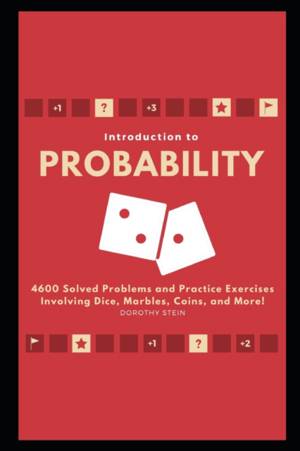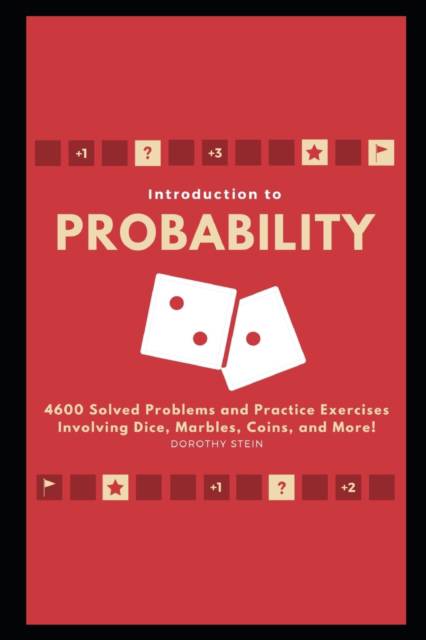
- Retrait gratuit dans votre magasin Club
- 7.000.000 titres dans notre catalogue
- Payer en toute sécurité
- Toujours un magasin près de chez vous
- Retrait gratuit dans votre magasin Club
- 7.000.0000 titres dans notre catalogue
- Payer en toute sécurité
- Toujours un magasin près de chez vous
Introduction to Probability
4600 Solved Problems and Practice Exercises Involving Dice, Marbles, Coins, and More!
Dorothy Stein
Livre broché | Anglais
34,95 €
+ 69 points
Description
Probability is where Common Sense meets MathematicsProbability Theory is at the heart of almost every rational decision we make in our lives.It lies at the heart of every game of chance, and huge sums are won and lost based on split-second mental calculations of the probability that a choice made is likely to win.It lies at the heart of decisions we make about purchases and investments: all cost-benefit analyses rely on probabilistic projections of the probable benefit in the most likely future case.Probability Theory can be unbelievably complex to master at the highest level.However, the basics of this important field of mathematics and economics are very simple.This book is dedicated to the basics of probability theory.The target audience for this book is quite large. Anyone who wants a first course in probability or a refresher course in the subject can go through the theory, the solved problems, and the practice exercises in this book with much profit.The book starts with a detailed examination of one of the most common examples in any introductory textbook on probability: dice. As I take the reader through every case when 1 die, 2 dice, and 3 dice are rolled, I make sure that understanding of the subject is motivated through the many case studies that I have chosen; dozens of different solved examples have been presented to the reader so that you will be armed with the tools to tackle any real life problem.I then take you through two more classic introductory probability examples: coins and marbles. These illustrate many points that a more advanced student of probability will find useful, and lay a strong foundation for conditional probability.Finally, you will be given a large number of practice problems, of slowly increasing levels of difficulty. These are great for you to test your understanding of the topic, and slowly level up as you tackle questions that require a deeper understanding, or greater numerical skills. By the end of the book, you will be able to produce an error free answer to any elementary probability problem. In case you are unable to solve any problem, detailed solutions are provided at the end of the book.The long term advantages of a thorough reading of this book are many. A strong foundation in basic probability will increase your common sense skills, and help you make choices based on concrete estimates based on data given, rather than making random guesses. It is especially important for students of business and any scientific field to make these decisions, and is equally important for professionals in any field to understand probability.All the best!
Spécifications
Parties prenantes
- Auteur(s) :
- Editeur:
Contenu
- Nombre de pages :
- 766
- Langue:
- Anglais
Caractéristiques
- EAN:
- 9798501705937
- Date de parution :
- 10-05-21
- Format:
- Livre broché
- Format numérique:
- Trade paperback (VS)
- Dimensions :
- 152 mm x 229 mm
- Poids :
- 1006 g

Les avis
Nous publions uniquement les avis qui respectent les conditions requises. Consultez nos conditions pour les avis.






